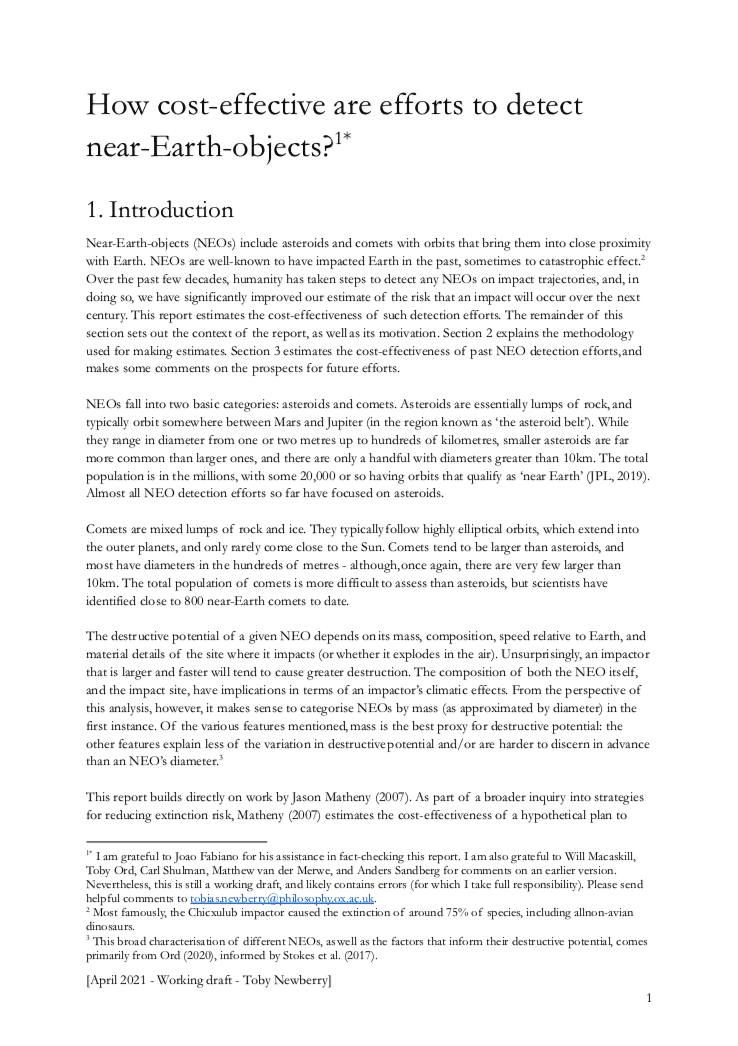How cost-effective are efforts to detect near-Earth-objects?
Toby Newberry (Future of Humanity Institute, University of Oxford)
GPI Technical Report No. T1-2021
Near-Earth-objects (NEOs) include asteroids and comets with orbits that bring them into close proximity with Earth. NEOs are well-known to have impacted Earth in the past, sometimes to catastrophic effect.2 Over the past few decades, humanity has taken steps to detect any NEOs on impact trajectories, and, in doing so, we have significantly improved our estimate of the risk that an impact will occur over the next century. This report estimates the cost-effectiveness of such detection efforts. The remainder of this section sets out the context of the report...
Other working papers
Misjudgment Exacerbates Collective Action Problems – Joshua Lewis (New York University) et al.
In collective action problems, suboptimal collective outcomes arise from each individual optimizing their own wellbeing. Past work assumes individuals do this because they care more about themselves than others. Yet, other factors could also contribute. We examine the role of empirical beliefs. Our results suggest people underestimate individual impact on collective problems. When collective action seems worthwhile, individual action often does not, even if the expected ratio of costs to benefits is the same. …
How should risk and ambiguity affect our charitable giving? – Lara Buchak (Princeton University)
Suppose we want to do the most good we can with a particular sum of money, but we cannot be certain of the consequences of different ways of making use of it. This paper explores how our attitudes towards risk and ambiguity bear on what we should do. It shows that risk-avoidance and ambiguity-aversion can each provide good reason to divide our money between various charitable organizations rather than to give it all to the most promising one…
Tough enough? Robust satisficing as a decision norm for long-term policy analysis – Andreas Mogensen and David Thorstad (Global Priorities Institute, Oxford University)
This paper aims to open a dialogue between philosophers working in decision theory and operations researchers and engineers whose research addresses the topic of decision making under deep uncertainty. Specifically, we assess the recommendation to follow a norm of robust satisficing when making decisions under deep uncertainty in the context of decision analyses that rely on the tools of Robust Decision Making developed by Robert Lempert and colleagues at RAND …

